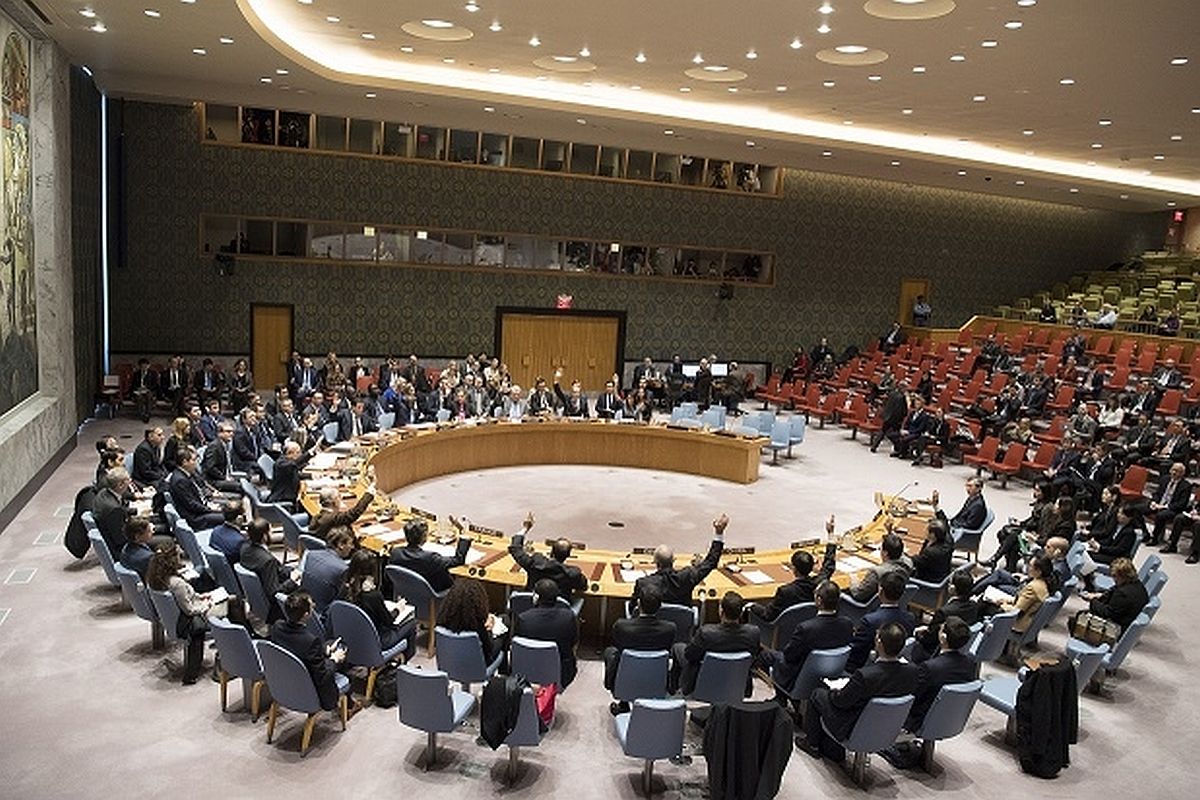Pakistan’s efforts to raise Jammu and Kashmir at the United Nations Security Council (UNSC) through China has once again flopped as none of the world body members commented on the issue apart from Beijing.
The Kashmir issue was met with a pushback led by the other permanent members who said it was a bilateral issue and not a matter for them and thereby isolating Beijing in the 15-member body.
Advertisement
The UNSC had held a “closed-door” meeting on Wednesday night on Kashmir at the request of Pakistan’s all-weather ally China.
According to reports, the meeting was convened to discuss the ceasefire violations along the Line of Control (LoC) between Pakistan and India.
However, Pakistani media had claimed that the meeting was held to discuss the “alarming human rights situation in Kashmir”.
China had made a request to deliberate on the Kashmir issue under the agenda of “Any Other Business Points”.
The US, France, UK and Russia had taken a strong stand against the Council’s interference in the issue.
Meanwhile, India has slammed Pakistan for trying to internationalise the Kashmir issue. New Delhi asserted that Islamabad needs to focus on the hard tasks it has to address in order to ensure normal relations with India.
India’s Ambassador and Permanent Representative to United Nations Syed Akbaruddin said: “We are happy that neither the alarming scenario painted by the representatives of Pakistan nor any of the baseless allegations made repeatedly by various representatives of Pakistan in UN fora were found to be credible.”
He added that the outcome of the consultation is on expected lines.
“We once again saw an effort made by one member state of the UN, fail in plain view of all others,” Akbaruddin told news agency PTI.
“We are glad that the effort was viewed as a distraction and it was pointed by many friends that bilateral mechanisms are available to raise and address issues that Pakistan may have in its ties with India,” he said.
Akbaruddin further said, “Pakistan’s practice of using false pretences to distract from addressing the malaise that afflicts it has run its course. We hope that Pakistan pays heed to the clear signals sent out here today and focusses on the hard tasks it has to address in order to ensure normal relations with India.”
Coming out of the meeting, Chinese Ambassador Zhang Jun said: “We had a meeting on Jammu and Kashmir. And I’m sure you all know that Foreign Minister of Pakistan wrote letters to the Security Council asking it to pay attention to the current situation in Jammu and Kashmir.
“The issue of India and Pakistan has always been on the agenda of the Security Council and today we have also seen some tensions, so the Security Council had a briefing and (it) heard at the briefing from the Secretariat concerning the current situation on the ground. Members exchanged views on that.”
Zhang later said China has stated its “position very clearly. We remain concern about the situation on the ground (in Kashmir).”
When asked if the meeting advanced anything, he said: “I am sure the meeting will help both the parties to understand the risk of further escalation and will encourage them to approach each other and have a dialogue and seek solutions through dialogue. I think that will be helpful.”
Sources said Wednesday’s talks at the UNSC were “informal”. A European official, heading into the Security Council meeting, described the discussions to be “low key”, PTI reported.
The current move by China was the third such attempt to raise the Kashmir issue in the UNSC since August last when the special status granted to Jammu and Kashmir under Article 370 of the Constitution was scrapped by the government, and the state was bifurcated into two union territories.
Last month, France, the US, UK and Russia had foiled an attempt by China to discuss Kashmir at a closed-door meeting of the UNSC.
China has been critical of India’s reorganisation of Jammu and Kashmir.
On August 5, last year, India ended special status to Jammu and Kashmir under Article 370 and decided to bifurcate the state two Union Territories — Jammu and Kashmir, and Ladakh.
Following this, Pakistan wrote a formal letter to the UNSC president calling for an emergency meeting of the UNSC to discuss India’s move to revoke the special status to Jammu and Kashmir. The letter was sent through Permanent Representative Maleha Lodhi to convene the meeting.
The UNSC declined to hold a formal session on Kashmir with Pakistan’s participation. Instead, it scheduled a closed-door consultation at the request of China.
However, in a major diplomatic victory for India, the United Nations Security Council acknowledged India’s measures to bring normalcy and development to Kashmir and wanted all countries to follow suit.
Barring China, the world accepted India’s position including the Arab world, formerly sponsors and supporters of Pakistan.
Majority of the 15 members said there should not be any statement or outcome issued after the consultations and their will prevailed, leaving China to come out and make a statement in its national capacity followed by Pakistan.









